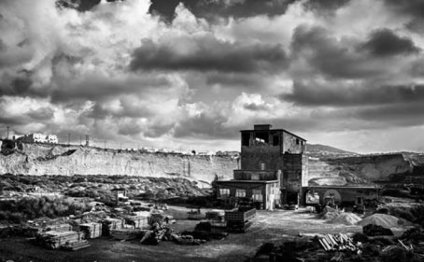
Current time in Santorini Greece
 Santorini is an archipelago made up of five volcanic islands which are orientated in a circular shape surrounding a dramatic deep blue ocean lake. Situated in the southern Aegean Sea, Santorini is a member of the Cyclades group of islands and is one of the most spectacular places in the world, matched by equally amazing weather. Located 200km south east from mainland Greece, Santorini enjoys a mild Mediterranean climate with year-round agreeable conditions. Santorini was originally a single island but an enormous underwater volcanic eruption resulted in the creation of geographic calderas which has resulting in a jaw-shaped layout that encompasses a rectangular shaped ocean inlet.
Santorini is an archipelago made up of five volcanic islands which are orientated in a circular shape surrounding a dramatic deep blue ocean lake. Situated in the southern Aegean Sea, Santorini is a member of the Cyclades group of islands and is one of the most spectacular places in the world, matched by equally amazing weather. Located 200km south east from mainland Greece, Santorini enjoys a mild Mediterranean climate with year-round agreeable conditions. Santorini was originally a single island but an enormous underwater volcanic eruption resulted in the creation of geographic calderas which has resulting in a jaw-shaped layout that encompasses a rectangular shaped ocean inlet.
As opposed to the usual four seasons that most countries and islands in Europe receive, the year in Santorini is mainly split into two seasons – summer and winter.
Beach in Santorini, Greece
SUMMER
Summer in Santorini usually falls between March and October. At this time of year, daily lows are at their lowest at 11°C in March, whilst they’re at their highest at 23°C in August. At the other end of the scale, daily high temperatures are at their highest at 29°C in July and August, whilst they’re at their lowest at 16°C in March. In recent times, the hottest day ever recorded in Santorini in summer took place in June when temperatures soared up to 40°C. On the other hand, the coldest day ever recorded in Santorini in summer fell in March, when temperatures plummeted down to 2°C.
Although the region does get particularly hot in late July and August – which are usually the hottest months of the year – the island is considerably cooler than some of its other Mediterranean counterparts, making it a popular choice for summer holidays. If you want to avoid the throngs of tourists which the summer months attract, it’s best to visit Santorini outside of the school holidays in May or June.
 Santorini is one of the most popular tourist destinations in the world so prices can skyrocket come the peak summer season. In addition to the island being less crowded in May and June, you can also enjoy the milder temperatures that they’re known for.
Santorini is one of the most popular tourist destinations in the world so prices can skyrocket come the peak summer season. In addition to the island being less crowded in May and June, you can also enjoy the milder temperatures that they’re known for.
Santorini experiences very little rainfall throughout the year, with the average rainfall levels plummeting down to 0mm in June and August. Rainfall tends to level off toward the end of April and picks up again in October. On average, the wettest month of the year in Santorini during the summer season is March, followed closely by October.
Across the summer months, the average sea temperature for the beaches in Santorini varies greatly from being far too cold to swim in to being just perfect. The sea is at its coldest in March at 16°C, whilst it’s at its warmest at 25°C in August. The best months of the year to go swimming in Santorini are between June and October when the waters are sufficiently warm.
During the summer period the island enjoys an average of nine to 13 hours of sunshine each day. It is when these hours of sunlight are coming to a close in the evening that crowds are drawn from all over the island, to the small cliff-side community of Oia, to watch the spectacular Aegean sunset.
The humidity in the region makes for hazy skies which contribute to this particular sunset being one of the most dramatic in the world. The haze in the sky often prevents a clear view across to nearby Crete which makes you feel as though you are a million miles away from anything.
The sunset is vast and spectacular and is thoroughly enjoyed by tourists and locals who gather together to watch it on the limestone cliffs, in the picturesque Greek houses and from the verandas of the many restaurants and cafes in the area. The constant island breezes provide a welcome break from the high humidity and almost have the affect of negating the humid conditions and leaving you to enjoy the comfortable summer temperatures.
WINTER
From a tourist’s point of view, anywhere in the Greek Islands becomes a bit of a ghost town during the winter months. This is not necessarily due to poor weather conditions, but partly due to the lack of transportation options during low season. Ferries depart much less regularly with some lines stopping completely. Some parts of the islands shut down entirely, with restaurants and bars closing down for the season and the beaches being left deserted.
Despite this, if you can get out to the islands and are willing to pay the higher travel costs that arise in the off-peak times, you will be met with much cheaper accommodation and leisure costs once you arrive.
Santorini’s mild weather makes it a suitable destination all-year-round. The winter season is normally described as being November to February, when average daily low temperatures range between 10°C in January and February and 14°C in November, whilst average daily high temperatures range between 19°C in November and 14°C in January and February. In recent times, the hottest day ever recorded in Santorini in winter took place in November, when temperatures reached as high as 27°C. At the other end of the scale, the coldest days ever recorded in Santorini in winter fell in January and February when temperatures dropped down to 0°C.
The island doesn’t receive heavy rainfall at any point during the year; however December and January are typically the wettest months. On average, Santorini in December receives an average of 74.5mm of rainfall divided between 11 wet days, whilst January is subject to an average of 70.5mm of rainfall which is spread out between ten rainy days.
RELATED VIDEO



Share this Post
Related posts
Vacation In Santorini, Greece
Our cool and comfortable studio with traditional greek style has a true good vibration! it comfortably fits two and it is…
Read MoreVacation Rentals in Santorini, Greece
Cliffside Villa floats like a cloud above the sparkling blue Aegean. Traditional houses in bright whites sprinkled with dazzling…
Read More










